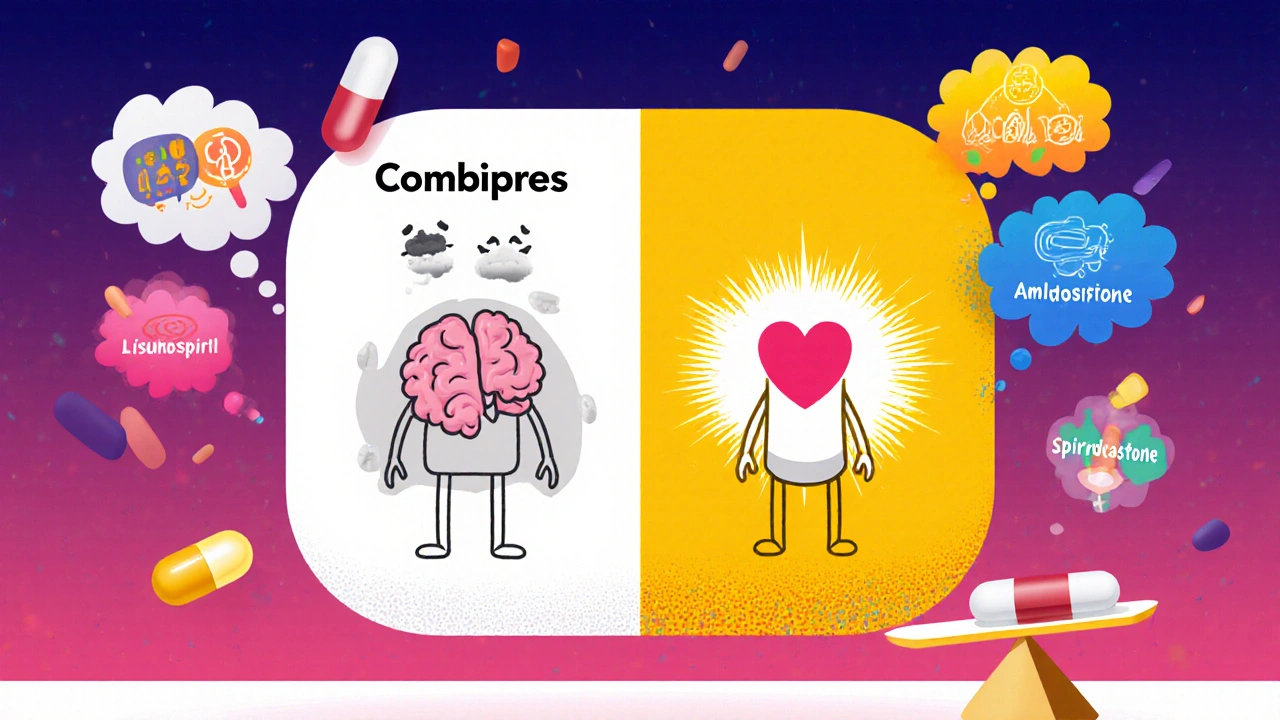Clonidine Hydrochloride: Uses, Side Effects, and What You Need to Know
When you hear clonidine hydrochloride, a prescription medication primarily used to lower blood pressure and manage ADHD symptoms. Also known as Catapres, it works by calming down your nervous system to reduce heart rate and relax blood vessels. It’s not just a blood pressure pill—doctors also use it to help with opioid withdrawal, anxiety, and even sleep issues in kids with ADHD.
It belongs to a group of drugs called alpha-2 agonists, a class of medications that target specific receptors in the brain to reduce nerve signals. This makes it different from typical blood pressure drugs like beta-blockers or diuretics. Unlike those, clonidine doesn’t make you pee more or slow your heart by blocking adrenaline—it tells your brain to send fewer signals that raise blood pressure. That’s why it’s sometimes added when other meds aren’t enough.
People often take it for hypertension, chronic high blood pressure that increases risk of heart attack and stroke, but it’s also used off-label for ADHD, especially when stimulants cause too many side effects or don’t work well. Some patients use it to ease hot flashes, nicotine cravings, or even severe menstrual cramps. It’s not a first-choice treatment for any of these, but it’s a tool doctors reach for when other options fail.
Side effects are common—dry mouth, drowsiness, dizziness, and constipation top the list. A lot of people feel tired at first, especially if they’re new to the drug. That usually gets better after a few weeks. Stopping clonidine suddenly can cause dangerous spikes in blood pressure, so you always need to taper off under a doctor’s watch. It’s not something you just quit because you feel fine.
The posts below cover real-world experiences with clonidine hydrochloride and similar drugs. You’ll find comparisons with other blood pressure meds, insights on how it affects sleep, what to do if side effects hit hard, and how it stacks up against alternatives for ADHD. There’s no fluff here—just clear, practical info from people who’ve used it, doctors who’ve prescribed it, and research that backs up what works.
Compare Combipres (Chlorthalidone and Clonidine Hydrochloride) with Alternative Blood Pressure Medications
Combipres combines chlorthalidone and clonidine to treat high blood pressure, but side effects like drowsiness and dry mouth lead many to seek alternatives. Compare top options like lisinopril/HCTZ, amlodipine/olmesartan, and spironolactone.
View more
